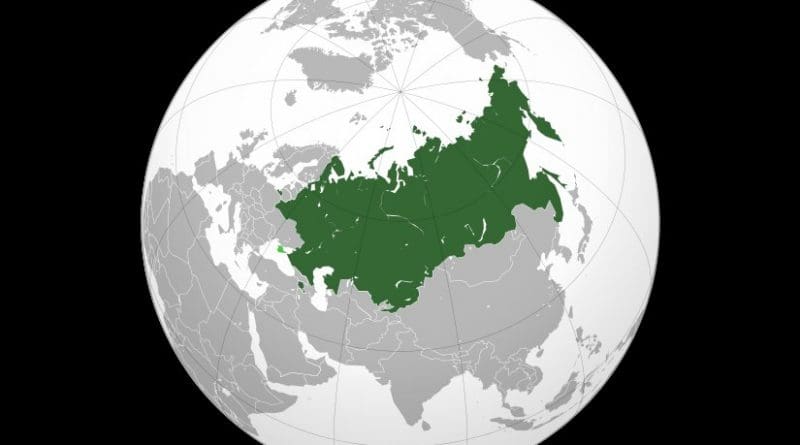Eurasian Economic Union Might Expand – OpEd
As the strained Russia-EU relations somewhat softened recently, and a rising cooperation is being seen over questions such as Ukraine and Moldova, Russia is on the economic offensive throughout the former Soviet space.
Valentina Matviyenko, a high ranking Russian official, announced recently that Uzbekistan had already decided to join the Russia-led Eurasian Economic Union (EEU) and that final preparations are taking place in that regard.
Uzbekistan is arguably the most important country in Central Asia as it is the only state bordering all four “stans” (Kazakhstan, Tajikistan, Kyrgyzstan, and Turkmenistan) of the region. From a purely geographic perspective, influence over Uzbekistan would increase Russian clout throughout the entire Central Asia.
Uzbekistan’s importance is also maximized by the fact that it possesses a pretty competitive industrial sector capable of producing various machinery and other vital products.
Uzbekistan’s membership of the EEU will also be a win for Moscow because of the latter’s quiet competition with the Chinese over the region, specifically in the economic and slightly military realms. As China rolls out its flagship Belt and Road Initiative, Uzbekistan is of primary importance to Beijing.
True, membership of the EEU will not mean cutting off trade between Uzbekistan and China, and the latter will certainly continue investing in the Uzbek economy. However, though no open animosity exists between Beijing and Moscow on Central Asia issues, Tashkent’s choice to become a member of the EEU will serve as a certain limit to rising Chinese ambitions.
On the other crucial front of Russia’s borderlands, Moscow is seemingly close to reaching a higher level of integration with Belarus (a country already an EEU member) by 2022. Though Minsk has officially refuted Russian plans on economic integration, it is clear that pressure from Moscow is indeed mounting and it is becoming increasingly difficult for Belarus to withstand various Russian moves.
Both events, which, at least according to the open source material, are likely to take place in the near future, will strengthen Russia’s position in Eurasia. It will also increase the EEU’s position and make the bloc economically more attractive for non-member former Soviet states such as Azerbaijan and potentially for Middle East powers (Iran and Turkey).
Though the expansion is a good indicator of Russia’s fortunes, in the long run it shows the limit of the EEU and Moscow’s strength. Still without Ukraine, the EEU is a constrained market, solely dominated by Russia, both economically, militarily and in terms of population numbers. In fact, as I have written in several articles for GT, nowadays the expansion of Russian economic (i.e. geopolitical) interests in Belarus and Uzbekistan is logical, as avenues for Moscow’s active foreign policy are limited to Central Asia and Belarus. Elsewhere (Ukraine, Moldova and Georgia), the Russian influence reached a certain limit, going beyond which would see Moscow needing to increase its military pressure in those countries.
Thus, Economic competition around Georgia and in wider Eurasia is intensifying, with large states increase their efforts to get smaller ones into their respective economic zones. All this is likely to build up geopolitical tensions in the super-continent.
This article was published by Georgia Today

